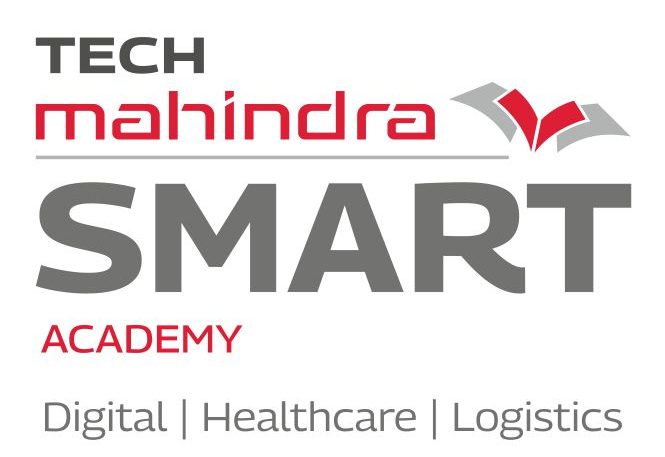Table of Contents
ToggleEarn while you learn program in India provides opportunities to the students to earn while they are learning through part-time jobs. Instead of going for regular studies of graduation and post-graduation, students prefer to go in for short-term earn-while-you-learn courses so that they start earning at a young age.
‘Learning by doing’ and ‘earning by learning’ is one of the most important pillars of future career development. Earn while you learn programs emphasize vocational education, which is a great combination of work and learning. The students of various streams not only financially support their studies but also gain practical experience which would stand by them in their later career. This helps the students to gain first-hand experience of the corporate world and thereby develop their self-confidence and personality. Accordingly, the students are encouraged to take up learn and earn job training programs or part-time jobs after completing their regular classes or during holidays, which would enhance their rating at the time of final placements.
Students must weigh their qualifications, skills, and knowledge more wisely because skills and capabilities are also important with ranks or grades. Benjamin Franklin quotes, “Tell me and I forget, teach me and I remember, involve me and I learn.” This defines earn and learn programme.
What is Vocational Training?
Vocational training, also known as Vocational Education & Training (VET) and Career & Technical Education (CTE), provides job-specific technical training for work in a specific career. Along with certification, these programs generally focus on providing students with hands-on instruction.
Earn while you learn courses are more skill-oriented than theory, ranging from Agriculture, Fitness, Beauty, Hotel, Healthcare, Maintenance, Aviation, Defence, and Engineering. It also caters to most of the intricate sectors such as Interior Designing, Media, and many more.
Vocational training provides a link between education and the working world. It is usually provided either at the high school level or in a post-secondary trade school. Eligibility requires a minimum passing requirement from the 10th or 12th grade. The course duration ranges anywhere from 3 months to 2 years.
Is Work and Learn a Good Option?
Yes. Definitely!
- It provides opportunities for students to earn while you learn program in India to meet their expenses.
- Exposes the students to the world of work before actual employment.
- Gives students hands-on experience and confidence, thereby preparing them better for taking up jobs in the future.
- The government scheme of earn while you learn programs is turning out to be a major draw for several college students who might have otherwise dropped out due to financial reasons.
The Future of Learning: Blending Education with Practical Experience
The importance of earn-while-you-learn courses is increasing gradually as the need for skilled employees increases in the market. The conventional model of studying at school, college, and university and then getting a job is gradually being replaced by a combined model that allows obtaining both knowledge and experience. These are not just financial rewards; the approach defines a student’s career path in a way that can only be achieved by the existence of learn and earn job training programs.
How Does Earning While Learning Shape the Future?
Reduces Financial Burden
It is a common phenomenon that a large number of students, particularly those belonging to low-income groups, find it difficult to fund their education beyond the high school level. Earn and learn programme helps because they can earn some money to cater to tuition fees and other bills without necessarily relying on loans or parents. This financial independence also brings responsibility and organization skills as well as time management skills.
Enhances Employability
As it has been seen in today’s employment arena, the knowledge that one gains from books is insufficient. This makes the employers prefer candidates who have had previous experience and exposure to the industry. Earn while you learn courses benefit students in that they are able to gain soft skills, problem-solving skills together with practical experience.
Bridges the Gap Between Education and Industry
One major concern that most graduates experience is the fact that they are overqualified but not properly skilled. Practical experience is obtained through earn-while-you-learn programs and part-time employment to enable the students to test their knowledge in practice. This practical experience makes it possible for students to go to the market without having to undergo internships once they have graduated.
Encourages Entrepreneurial Mindset
Of the students, some are able to use their work experience to start up their own businesses. They acquire working experience while in school or do internships or freelance jobs which provide knowledge on how business organizations operate, managing customers, and financial aspects, which are vital for any person planning to be an entrepreneur. Earn while you learn program in India supports this transition.
Develops a Strong Work Ethic
Balancing work and studies is something that needs organization, time, effort, and lots of determination. All these characteristics are useful not only during the study years but also in the later years of one’s professional life.
Opportunities for Students to Earn While Learning
As it has been mentioned, there are many vacancies for students who wish to work while they learn. Some of these include:
- Internships & Apprenticeships: There are paid internships that give the students exposure to the industry and work experience. The learn and earn courses is high in fields such as IT, media, marketing, and finance.
- Freelancing: Students can take up freelance writing, graphic designing, coding, or digital marketing jobs due to the increase in the gig economy. Upwork, Fiverr, and Freelancer are some of the platforms students use to get projects and earn an income.
- Tutoring Online: Students who have expertise in some subjects can offer their services to other students through various websites such as Chegg, Vedantu, or Byju’s. Not only does it assist them to earn but also assist them in consolidating their knowledge of the particular topic.
- Temporary work: Many companies, especially retail shops, eateries, and call centers, offer temporary employment to students. These jobs are useful in that they impart good customer relations and interpersonal skills.
- Internet Marketing & Social Media: As the use of internet media increases, students can earn through YouTube, blogging, or Instagram or any other platform through content creation. Many brands also provide collaborations and sponsorships through earn and learn programmes.
The Role of Technology in Learning While Earning
The young people, especially the students, have benefited from the digital revolution in that they can balance between work and school. Flexible courses such as earn-while-you-learn courses, internships, or even remote jobs mean that students do not need to be physically present in a certain area. There are various learning models in universities today that enable students to learn online while at the same time practicing their area of specialization.
Need for Earning While Learning
- Earn-while-you-learn programs are more than a necessity for students coming from poor financial conditions.
- Working learners are more concerned about enhancing their resumes and gaining work experience than paying for tuition.
- The already working graduates benefit from their work experience, which becomes an asset when they enter the full-time job market.
- Even the adults who wish to study more can rely on working while learning.
Conclusion
With support from the Ministry of Education, it is possible to achieve a greater mission for the students by overcoming challenges in the field of vocational education. The survival skills provide the pathways from education to work. The rise in the number of working learners is a natural evolution of our work-based society, and earn-while-you-learn courses are an essential part of this shift.

